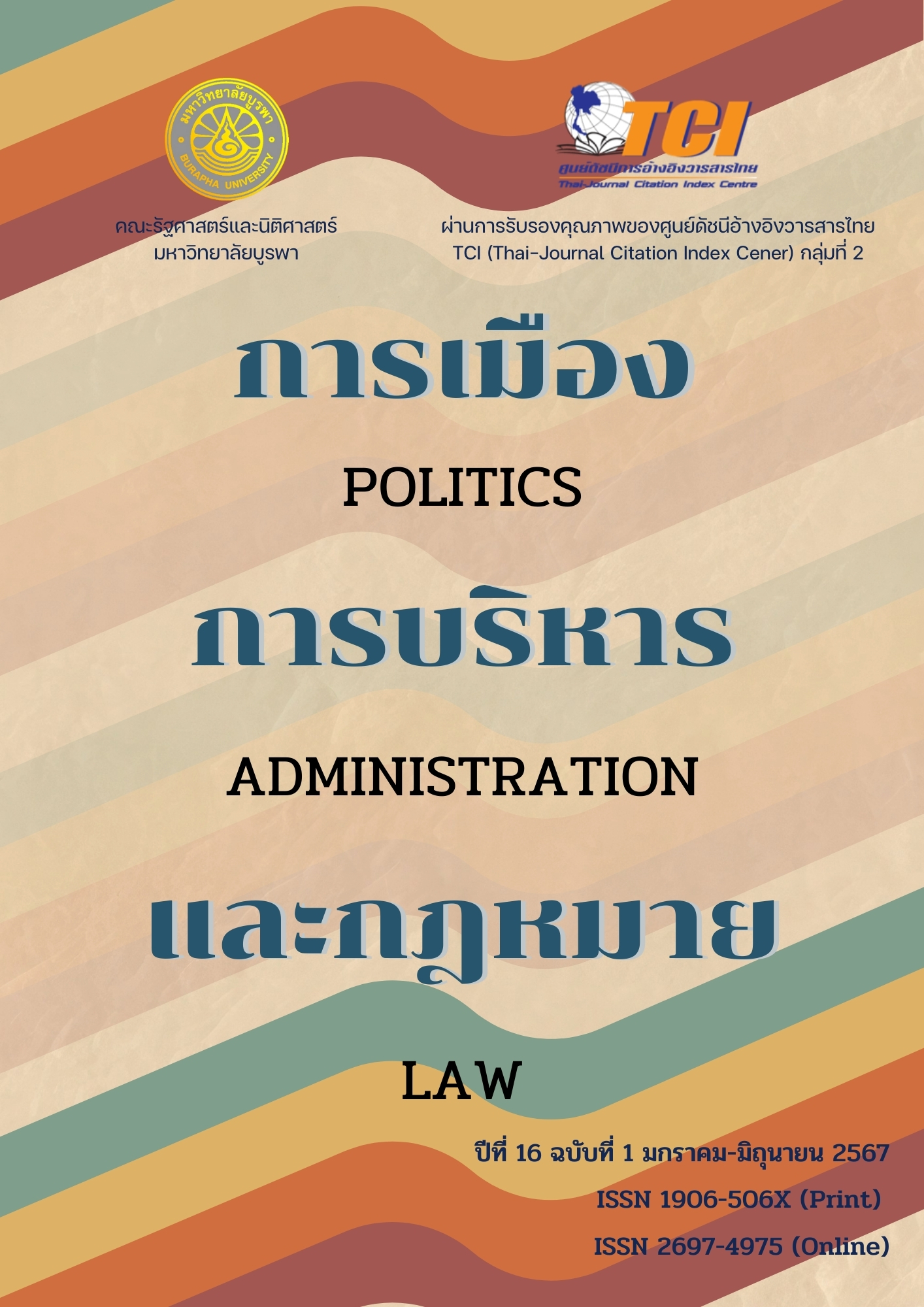Principle of Consent in Data Protection Law: Comparative Study of the European Union, Republic of Korea and Kingdom of Thailand
Keywords:
Consent, Privacy, Privacy data Protection LawAbstract
The objectives of this study are: (1 ) to study the concepts, theories, and criteria related to personal rights and principles of consent in connection with personal data protection; (2) to study the laws and criteria governing the enforcement of General Data Protection Regulation (GDPR) in the European Union and the Personal Information Protection Act (PIPA) in the Republic of Korea and the Personal Data Protection Act of B.E. 2562 (PDPA) in Thailand; (3) to study and analyze the problematic issues and potential obstacles related to the principles of consent concerning the protection of personal data in Thailand, in comparison with the GDPR and PIPA; and (4) to study and explore potential approaches to improve its appropriateness application of the principles of consent in protecting personal data within the context of Thai society while strictly adhering with international standards.
The results of the study found that: (1) the right to privacy is viewed as fundamental human right that on one cannot violate except with that person’s consent; (2) in principle, the consent must be freely obtained, precise, well-informed consent, and able to withdraw consent at any time; (3) currently, the use of principle of consent in Thailand’s personal data protection law still in infantry stage and require cautious interpretation and enforcement of the privacy law differs from that of the European Union establishing a systematic enforcement moreover the decision of the Court of justice of the EU also take into account the fundamental rights. and basic human rights rather than the state’s widespread security claims; and the Personal Information Protection Act (PIPA) in the Republic of Korea requires consent in each and every stage of personal data collection and provides clear guidelines, reducing potential risk of misinterpretation and discretionary use by data control authorities; and (4) therefore, the researcher proposes potential amendments to the Personal Data Protection Act of B.E. 2562 (PDPA), incorporating effective aspects of the GDPR and PIPA, tailored to comply with the social context of Thai society.
References
คณะกรรมการสิทธิมนุษยชนแห่งชาติ. (2550). ปฏิญญาสากลว่าด้วยสิทธิมนุษยชน Universal Declaration of Human Rights. กรุงเทพฯ: สำนักงานคณะกรรมการสิทธิมนุษยชนแห่งชาติ.
คณะกรรมการสิทธิมนุษยชนแห่งชาติ. (2550). หลักกฎหมายระหว่างประเทศทั่วไปเกี่ยวกับสนธิสัญญาด้านสิทธิมนุษยชน กติการะหว่างประเทศว่าด้วยสิทธิพลเมืองและสิทธิทางการเมือง พิธีสารเลือกรับ ฉบับที่สองแห่งกติการะหว่างประเทศว่าด้วยสิทธิพลเมือง และสิทธิทางการเมือง. กรุงเทพฯ: สำนักงานคณะกรรมการสิทธิมนุษยชนแห่งชาติ.
คณาธิป ทองรวีวงศ์. (2559). การปฏิรูปกฎหมายคุ้มครองข้อมูลส่วนบุคคลของไทยเพื่อเข้าสู่ประชาคมอาเซียน. ทุนวิจัยสำนักงานเลขาธิการสภาผู้แทนราษฎร
ประจำปีงบประมาณ 2559. กรุงเทพฯ: สำนักงานเลขาธิการสภาผู้แทนราษฎร.
จักรวาล ส่าเหล่ทู. (2558). มนุษย์กล้อง นักถ่ายประจาน ระวังติดคุกไม่รู้ตัว. วันที่ค้นข้อมูล 19 เมษายน 2566, เข้าถึงได้จาก https://www.posttoday.com/politics/360016
ณัชปกร นามเมือง. (2566). นักเคลื่อนไหวยื่นฟ้องรัฐ หลังพบการใช้สปายแวร์ เพกาซัส สอดแนมประชาชน. วันที่ค้นข้อมูล 23 มิถุนายน 2566, เข้าถึงได้จากhttps://plus.thairath.co.th/topic/politics&society/103359
ไทยรัฐออนไลน์. (2566). ตำรวจไซเบอร์รวบโจรแสบเข้าปิ้ง ลักข้อมูล 15 ล้านรายชื่อ เอี่ยวบัญชีม้า-Romance Scams สูญร่วม 18 ล้าน. วันที่ค้นข้อมูล 24 สิงหาคม 2566, เข้าถึงได้จากhttps://mgronline.com/stockmarket/detail/9660000076373
สพธอ. (2558). ETDA เปิดบ้านถกประเด็น คนไทยเห็น privacy สำคัญจริงหรือในเมื่อยอมแลกข้อมูลส่วนตัวกับกาแฟเพียงแก้วเดียว. วันที่ค้นข้อมูล 3 มกราคม 2567, เข้าถึงได้จากhttps://ictlawcenter.etda.or.th/news/detail/etda-dp-2015-01-31
สำนักงานคณะกรรมการธุรกรรมทางอิเล็กทรอนิกส์. (2563). สรุปสาระสำคัญของกฎหมายคุ้มครองข้อมูลส่วนบุคคล และประเด็นที่เกี่ยวข้องกับการคุ้มครองข้อมูล ส่วนบุคคลในการทำธุรกรรมทางอิเล็กทรอนิกส์ภาครัฐ. วันที่ค้นข้อมูล 3 มกราคม 2567, เข้าถึงได้จากhttp://www.etcommission.go.th/article-dp-topic-conclusion-dp.html
Council of Europe. (2013). European Convention on Human Rights. Retrieved 24 August, 2023, from https://www.echr.coe.int/documents/d/echr/Convention_ENG
Wiedemann, K. (2020). A Matter of Choice: The German Federal Supreme Court’s Interim Decision in the Abuse-of-Dominance Proceedings Bundeskartellamt v. Facebook (Case KVR 69/19). Retrieved 24 August, 2023, from https://link.s pringer.com/ article/10.1007/ s40319-020-00990-3#Fn2 /
Downloads
Published
Issue
Section
License

This work is licensed under a Creative Commons Attribution-NonCommercial-NoDerivatives 4.0 International License.






